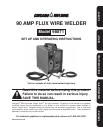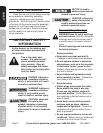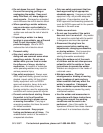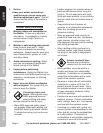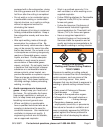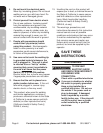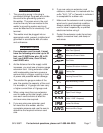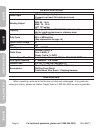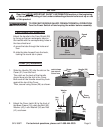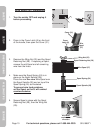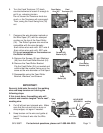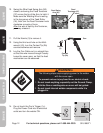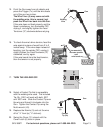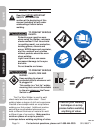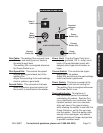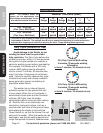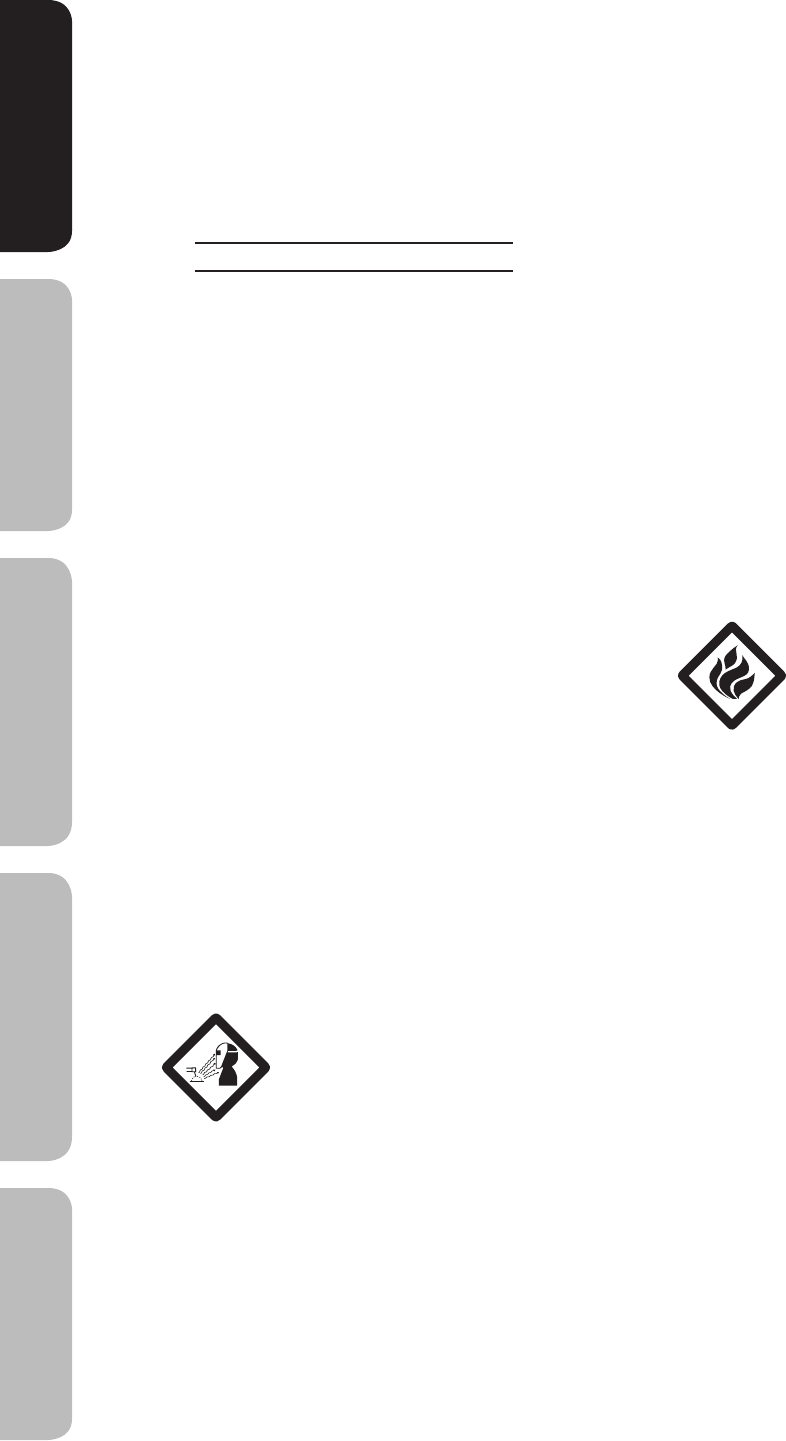
Page 4 For technical questions, please call 1-800-444-3353. SKU 98871
SAFETY SERVICEBASIC WELDING WELDING TIPSSETUP
Service5.
Have your welder serviced by a a.
qualied repair person using only
identical replacement parts. This will
ensure that the safety of the welder is
maintained.
Welder Safety Warnings
Maintain labels and nameplates on 1.
the Welder. These carry important
information. If unreadable or missing,
contact Harbor Freight Tools for a
replacement.
Maintain a safe working environment. 2.
Keep the work area well lit. Make
sure there is adequate surrounding
workspace. Always keep the work area
free of obstructions, grease, oil, trash,
and other debris.
Avoid unintentional starting. 3. Make
sure you are prepared to begin work
before turning on the Welder.
Unplug before performing 4.
maintenance. Unplug the Welder from
its electrical outlet before performing any
inspection, maintenance, or cleaning
procedures.
Never leave the Welder unattended 5.
while energized. Turn power off if you
have to leave the Welder.
6. Prevent eye injury and
burns. Wearing and using
ANSI-approved personal
safety clothing and safety
devices reduce the risk for injury.
Wear ANSI-approved safety impact •
eye goggles underneath welding eye
protection featuring at least a number
10 shade lens rating, such as the one
included.
Leatherleggings,reresistantshoesor•
boots should be worn when using this
product. Do not wear pants with cuffs,
shirts with open pockets, or any clothing
that can catch and hold molten metal or
sparks.
Keep clothing free of grease, oil, •
solvents,oranyammablesubstances.
Wear dry, insulating gloves and
protective clothing.
Wear an approved head covering to •
protect the head and neck. Use aprons,
cape, sleeves, shoulder covers, and
bibs designed and approved for welding
and cutting procedures.
When welding/cutting overhead or in •
connedspaces,wearameresistant
ear plugs or ear muffs to keep sparks
out of ears.
7. Prevent accidental res.
Remove any combustible
material from the work area.
When possible, move the work to a •
location well away from combustible
materials. If relocation is not possible,
protect the combustibles with a cover
madeofreresistantmaterial.
Remove or make safe all combustible •
materials for a radius of 35 feet (10
meters) around the work area. Use a
reresistantmaterialtocoverorblock
all open doorways, windows, cracks,
and other openings.
Enclosetheworkareawithportablere•
resistant screens. Protect combustible
walls,ceilings,oors,etc.,fromsparks
andheatwithreresistantcovers.
If working on a metal wall, ceiling, etc., •
prevent ignition of combustibles on the
other side by moving the combustibles
to a safe location. If relocation of
combustibles is not possible, designate
someonetoserveasarewatch,



